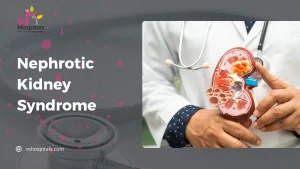Coronary artery bypass surgery is a life-saving procedure designed to restore proper blood flow to the heart when coronary arteries are severely blocked. This surgery is essential for individuals experiencing chest pain, shortness of breath, or a high risk of heart attack due to coronary artery disease. By using healthy blood vessels from other parts of the body, the procedure bypasses blockages, offering a chance for improved heart health and a better quality of life.
What is Coronary Artery Bypass Surgery?
Coronary artery bypass surgery is a surgical procedure that helps improve blood flow to the heart by creating a new pathway around blocked or narrowed coronary arteries. This is done using healthy blood vessels taken from other parts of the body, such as the chest, arm, or leg. Also referred to as artery bypass grafting surgery, it is recommended for individuals with severe coronary artery disease.
- Arteries used for bypass surgery are typically the internal mammary artery, radial artery, or saphenous vein.
- The procedure restores oxygen-rich blood to the heart muscle.
- It helps relieve symptoms like chest pain and shortness of breath.
This life-saving procedure is tailored to improve heart function and overall quality of life.
Why is Coronary Artery Bypass Surgery Done?
Coronary artery bypass surgery is performed to restore blood flow to the heart in individuals with significant blockages in the coronary arteries. This procedure addresses severe coronary artery disease that cannot be managed with medications or less invasive treatments. It aims to alleviate symptoms and prevent life-threatening complications.
- Relieving chest pain caused by blocked arteries.
- Improving blood flow to areas of the heart deprived of oxygen.
- Reducing the risk of heart attack in high-risk patients.
- Enhancing overall heart function for better quality of life.
By treating complex cases, bypass surgery of heart procedures ensures long-term cardiovascular health.
What Conditions are Treated by Coronary Artery Bypass Surgery?
Coronary artery bypass surgery is primarily used to treat severe blockages in the coronary arteries caused by coronary artery disease. This procedure helps improve blood flow and alleviates symptoms that limit daily life. It is recommended for patients with:
- Severe coronary artery disease (CAD): Multiple blocked or narrowed arteries that restrict blood flow to the heart.
- Post-heart attack complications: Damaged heart tissue requiring bypass for improved function.
- Failed angioplasty or stenting: When previous procedures were unsuccessful in opening blocked arteries.
By addressing these conditions, artery bypass grafting surgery offers relief and better heart health.
Variations of Coronary Artery Bypass Surgery
Coronary artery bypass surgery comes in several variations, tailored to patient needs. These include off-pump CABG, minimally invasive CABG, robot-assisted CABG, and the hybrid procedure. Each offers unique benefits depending on the condition and complexity of coronary artery blockages. Let’s explore these procedures in detail:
Off-Pump CABG
Off-pump coronary artery bypass surgery is performed on a beating heart without the need for a heart-lung machine. This method minimizes complications like stroke or kidney problems and is ideal for patients who may not tolerate traditional bypass surgery. It’s also referred to as off-pump artery bypass grafting surgery.
Minimally Invasive CABG
This advanced variation of coronary artery bypass surgery uses small incisions instead of opening the chest. It reduces recovery time, lowers infection risks, and ensures less postoperative discomfort. Often used for single or double bypasses, it’s a popular choice for patients needing quicker recovery.
Robot-Assisted CABG
Robot-assisted bypass surgery of heart procedure utilizes robotic arms for precise, minimally invasive grafting. The surgeon operates the robotic system, ensuring accuracy in small or hard-to-reach areas. This innovative technique results in smaller scars, reduced hospital stays, and faster recovery compared to traditional surgery.
Hybrid Procedure
The hybrid approach combines coronary artery bypass surgery with stenting to address complex blockages. Surgeons perform bypasses on some arteries while using stents for others. This procedure offers the benefits of both techniques, ensuring better outcomes for patients with multi-vessel coronary artery disease.
Recovery: What Happens After the Procedure?
Recovery after coronary artery bypass surgery involves a combination of rest, rehabilitation, and lifestyle changes to ensure optimal healing and heart health. While individual recovery times may vary, most patients start feeling better within weeks. Following your doctor’s advice is crucial to prevent complications and promote recovery.
- Rest adequately but gradually increase physical activity like walking.
- Follow wound care instructions to prevent infections.
- Eat a heart-healthy diet low in salt, sugar, and unhealthy fats.
- Take prescribed medications as directed to support recovery.
- Avoid smoking or alcohol for better healing outcomes.
With proper care, most people can resume normal activities within a few months.
Complications of Coronary Artery Bypass Surgery
Coronary artery bypass surgery is generally a safe and effective procedure, but like any major surgery, it carries certain risks. Understanding potential complications helps patients stay informed and prepared for the recovery process. Possible complications include:
- Irregular heart rhythms (arrhythmias): Common after surgery, requiring monitoring and medication.
- Bleeding: May occur at the incision site or internally.
- Infections: Chest wounds may become infected without proper care.
- Kidney problems: Temporary issues may arise due to anesthesia or medication.
- Stroke or heart attack: Rare but serious complications.
With proper care, these risks can be minimized, ensuring a smoother recovery.
Conclusion
Coronary artery bypass surgery is a transformative procedure that improves blood flow to the heart, significantly enhancing the quality of life for those with severe coronary artery disease. By effectively bypassing blocked arteries, this surgery reduces symptoms, prevents heart attacks, and offers long-term benefits. At VS Hospitals, we provide expert care and personalized treatment for every patient undergoing coronary artery bypass surgery, ensuring the best outcomes for your heart health. Take the first step toward recovery today.




